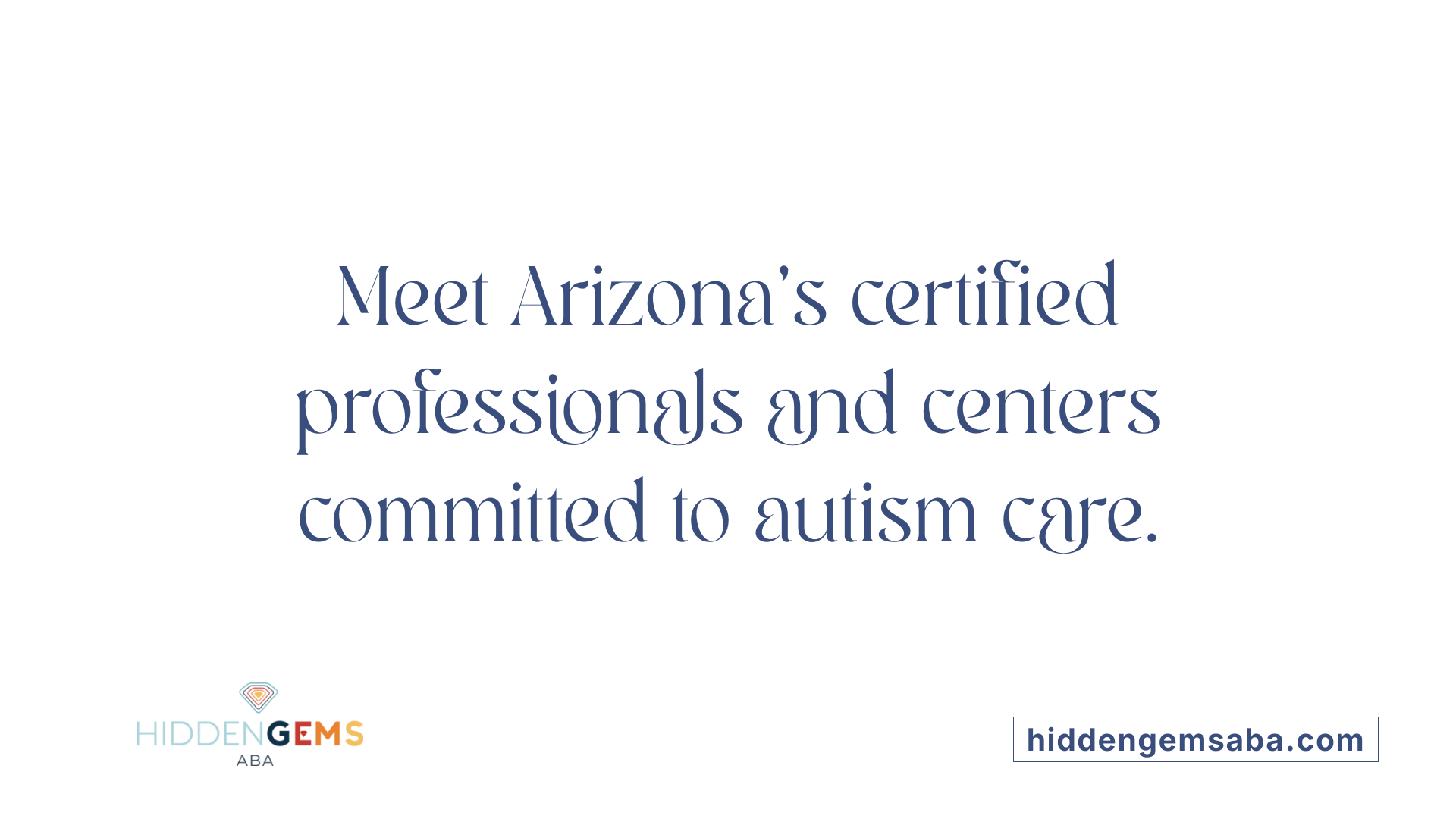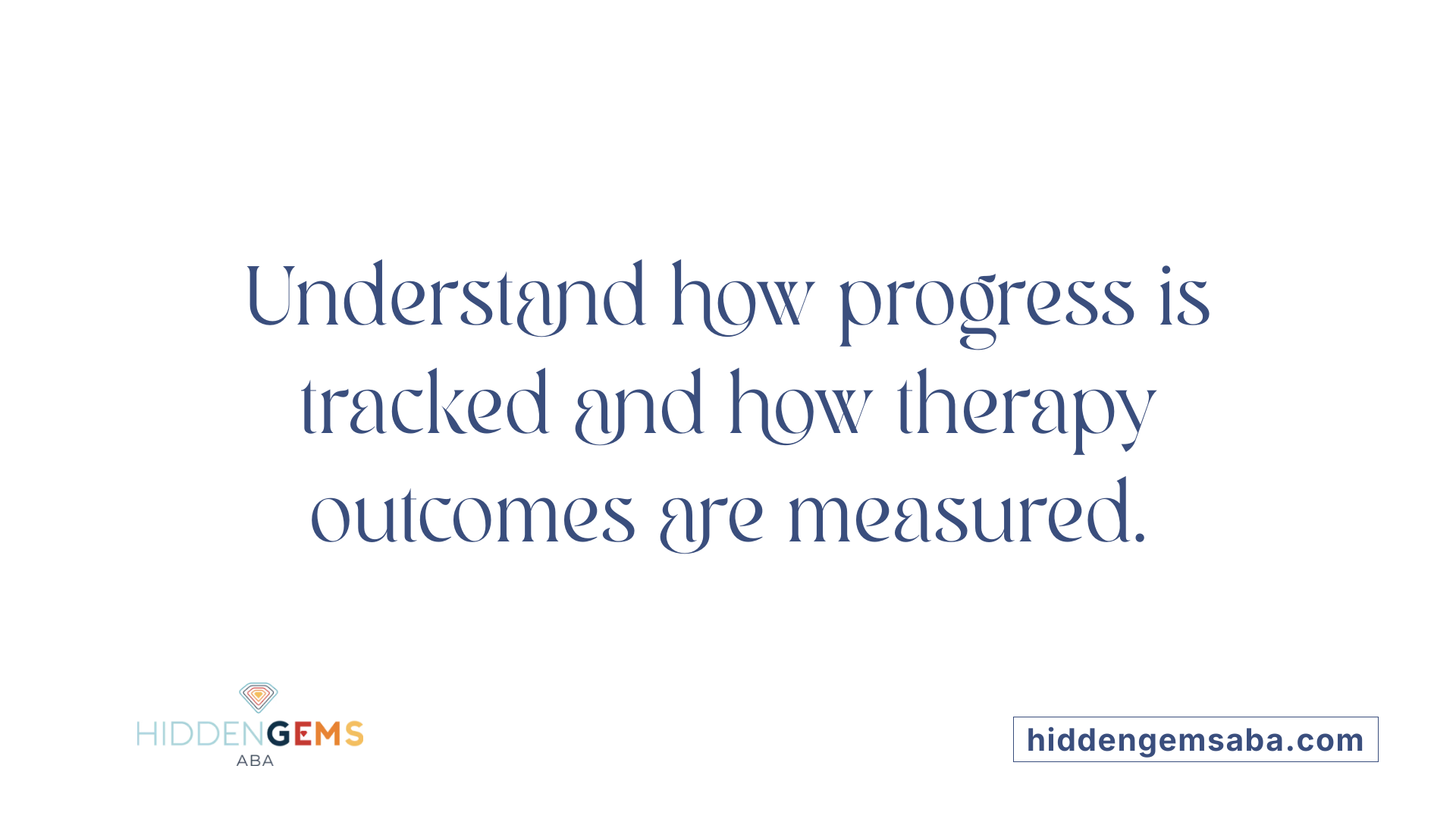Expanding Horizons for Adults with Autism in Arizona
Arizona has made significant strides toward providing specialized, effective autism services for adults through a range of programs and expert providers. This article explores the breadth of support available, from diagnosis to tailored therapy interventions like Applied Behavior Analysis (ABA). Understanding these services can empower individuals and families to navigate resources and achieve meaningful progress across the lifespan.
Understanding ABA Therapy and Its Role in Autism Support

What is Applied Behavior Analysis (ABA) therapy and how does it help individuals with autism?
Applied Behavior Analysis (ABA) therapy is a science-based method that uses learning principles to support individuals with autism. It helps develop useful skills and reduce challenging behaviors by carefully analyzing what happens before and after behavior occurs. Qualified professionals create personalized treatment plans to target communication, social skills, self-care, and more. ABA can be delivered in various settings like home, school, or community and often involves intensive sessions over time. Supported by research, ABA is widely recognized as an effective intervention for many children and adults with autism.
What are the common techniques used in ABA therapy?
ABA therapy incorporates several key techniques tailored to each individual’s needs:
- Positive reinforcement: Rewarding desired behaviors to encourage them.
- Discrete Trial Training (DTT): Breaking skills into small steps with clear prompts.
- Task Analysis: Dividing complex tasks into teachable components.
- Natural Environment Teaching (NET): Teaching skills during everyday activities.
- Additional methods: Prompting, chaining, and shaping are used to encourage learning.
These strategies are combined to promote meaningful behavioral changes personalized for each person.
What are some common misconceptions about ABA therapy for autism?
Several myths about ABA therapy exist. Many believe ABA is rigid or the same for everyone, but it is actually highly individualized. Some think it tries to change a person’s core identity, while its true goal is to enhance daily functioning and quality of life. Another misconception is that ABA focuses only on compliance and ignores emotional well-being; however, modern ABA approaches integrate social and emotional support. Also, ABA is sometimes thought to be only for young children, but it can benefit individuals across all ages.
Understanding ABA as a flexible and person-centered therapy helps clarify its valuable role in autism support.
Qualified Providers Delivering ABA Therapy and Autism Services

Who typically provides ABA therapy and what qualifications do they have?
ABA therapy is primarily administered by professionals with specialized training and certifications in behavioral analysis and autism treatment. The most qualified individuals are Board Certified Behavior Analysts (BCBAs), who possess graduate-level degrees and have undergone extensive supervised training in ABA methodologies. They design and oversee individualized treatment plans to meet each child's unique needs.
Supporting the BCBAs are Registered Behavior Technicians (RBTs). RBTs complete focused training and certification that enable them to implement ABA therapy directly with children, always under BCBA supervision. Their role is vital in delivering consistent daily interventions.
Multidisciplinary collaboration in ABA programs
ABA services often work best within a multidisciplinary team including speech therapists, occupational therapists, psychologists, and medical providers. This collaboration ensures comprehensive support addressing communication, motor skills, mental health, and other developmental areas alongside behavioral therapy.
Examples of Arizona providers and centers offering autism services
Arizona hosts several reputable providers specialized in ABA therapy and broader autism services. For example, the Southwest Autism Center of Excellence (SACE) in Maricopa County offers a broad spectrum of services, including focused ABA, psychiatric care, and family support programs. Established in 2017, SACE collaborates closely with medical and developmental experts to create personalized treatment plans.
Similarly, Thrive Autism operates multiple ABA clinics across the East Valley, including Gilbert and Tempe. Their services emphasize early intervention, family training, and social skills development in sensory-friendly environments. Parents report high satisfaction due to individualized care and evidence-based approaches.
Banner – University Family Care/ACC (B – UFC/ACC) provides medically necessary behavioral and physical health services, including autism diagnosis and treatment, primarily serving central and southern Arizona. They incorporate state principles and recovery-oriented practices, ensuring personalized care.
Overall, ABA therapy in Arizona is delivered by qualified, certified professionals like BCBAs and RBTs within multidisciplinary frameworks at established centers, ensuring effective support for individuals with autism across the lifespan.
Accessing ABA Therapy and Autism Services in Arizona

How can families access ABA therapy services for their loved ones with autism?
Families in Arizona seeking ABA therapy for their loved ones typically start by consulting healthcare providers such as pediatricians, developmental specialists, or neurologists. These professionals can initiate referrals and guide families through standardized assessments to obtain an ASD diagnosis. Once diagnostic confirmation is established, families can explore various service providers specialized in autism care throughout the state.
Specialized centers such as the Southwest Autism Center of Excellence (SACE) in Maricopa County and Thrive Autism’s clinics across the East Valley provide comprehensive ABA services alongside diagnostics, medication management, and family support. SACE develops personalized treatment plans integrating medical and behavioral health perspectives to address individual strengths and needs. Thrive Autism offers both in-clinic and in-home ABA, emphasizing early intervention and family involvement to improve long-term outcomes.
Insurance and state-funded program coverage
ABA therapy is often covered by private insurance and state Medicaid programs when medically necessary. In Arizona, the Arizona Health Care Cost Containment System (AHCCCS) plays a critical role in funding autism services for eligible children and adults. Providers such as Banner – University Family Care/ACC support AHCCCS members with medically necessary physical and behavioral health services, including ASD diagnosis and treatment.
Additionally, state programs like the Department of Economic Security’s Division of Developmental Disabilities (DES-DDD) require specific ASD diagnostic procedures to determine eligibility for developmental supports. These agencies help facilitate access to state-funded services, which may include ABA therapy, depending on individual eligibility and needs.
Referral and diagnostic procedures
Obtaining a diagnosis is often the first step towards accessing appropriate services. In Arizona, families can find lists of specialized, qualified diagnostic providers maintained by B – UFC/ACC and DES-DDD. Early interventions are particularly emphasized, with research showing improved symptom management for children under age three.
Families can request evaluations through their healthcare provider or contact agencies directly to schedule assessments. Reports and updates from state advisory committees, such as the ASD Advisory Committee established in 2015, support families and providers with the latest guidelines and resources.
Role of state agencies like AHCCCS and DES-DDD in service provision
State agencies such as AHCCCS and DES-DDD are fundamental to autism services in Arizona. AHCCCS funds behavioral health services for Medicaid-eligible individuals and maintains directories of specialized providers for diagnosis and treatment. DES-DDD oversees developmental disability services that incorporate ASD evaluation and eligibility determination to connect individuals with needed interventions.
These agencies also ensure service coordination, adherence to individualized plans, and integration of culturally sensitive approaches across the lifespan. Families can contact them for assistance navigating eligibility, service options, and provider referrals.
| Aspect | Service Providers | Role | Coverage Area |
|---|---|---|---|
| ABA Therapy Access | Thrive Autism, SACE | Provides therapy, early intervention, family support | Arizona statewide (East Valley focus) |
| Insurance & Funding | AHCCCS, Private Insurers | Covers medically necessary ABA, health services | Statewide, eligibility-based |
| Diagnostic Services | B – UFC/ACC, DES-DDD Providers | Diagnoses ASD, determines eligibility for support | Central & Southern Arizona |
| State Agencies | AHCCCS, DES-DDD | Service funding, provider directories, regulatory oversight | Statewide |
Major Autism Service Providers in Arizona for Adults

Overview of Southwest Autism Center of Excellence (SACE)
Established in 2017 as part of Southwest Behavioral and Health Services, the Southwest Autism Center of Excellence (SACE) is recognized as one of Mercy Care's 2023 Autism Spectrum Disorder Centers of Excellence. Located in Maricopa County, SACE offers a comprehensive range of services tailored specifically to individuals on the autism spectrum. These include psychiatric services, diagnostics, medication management, and a variety of therapy options such as individual and family therapy, group services for families, and court-ordered treatment. They also provide residential and semi-supported housing as well as day treatment programs and community-based social groups.
Thrive Autism’s Approach and Services
Thrive Autism delivers ABA services both in-clinic and in-home throughout Arizona, including areas such as Gilbert and Tempe in the East Valley. Having provided over 10,000 hours of individualized ABA therapy, Thrive Autism emphasizes early intervention, behavioral consultation, social skills training, and life skills development. They maintain a strong focus on family involvement by offering caregiver training to reinforce therapy gains. Their clinics are designed as safe, sensory-friendly environments that accommodate the unique needs of children with autism and their families.
Banner – University Family Care/ACC’s Offerings
Banner – University Family Care/ACC (B – UFC/ACC) serves AHCCCS-eligible populations across central and southern Arizona. They provide medically necessary physical and behavioral health services, including ASD diagnosis and treatment. Their services are personalized and incorporate Arizona's state principles along with recovery-oriented best practices. Additionally, B – UFC/ACC keeps an updated list of specialized providers for diagnosing and treating ASD in both children and adults, facilitating access to comprehensive care.
Individualized Treatment Plans and Lifespan Care
All three providers—SACE, Thrive Autism, and B – UFC/ACC—emphasize individualized treatment plans tailored to each member's unique strengths, needs, and goals. Collaboration with medical, developmental, and mental health professionals is common practice. Moreover, SACE specifically highlights serving individuals across their lifespan while respecting cultural heritage, ensuring continuity of care from early intervention through adulthood.
| Provider | Services Offered | Focus Areas | Location |
|---|---|---|---|
| Southwest Autism Center of Excellence (SACE) | Psychiatry, diagnostics, therapy, housing, community groups | Lifespan care, individualized plans, cultural respect | Maricopa County |
| Thrive Autism | ABA therapy, social skills, life skills, caregiver training | Early intervention, family involvement, sensory-friendly clinics | Gilbert, Tempe, East Valley |
| Banner – University Family Care/ACC (B – UFC/ACC) | Medically necessary health services, ASD diagnosis/treatment | Recovery practices, personalized care, provider network | Central & Southern Arizona |
Evaluating the Impact and Effectiveness of Autism Services

How is the effectiveness of ABA therapy measured?
The effectiveness of ABA therapy is measured through systematic and ongoing progress tracking. Providers use standardized tools such as behavior rating scales, skill checklists, and detailed data collection to monitor changes in social, communication, and adaptive skills. Progress is gauged against goals in individualized treatment plans, including reductions in problematic behaviors and gains in independence.
Importance of progress tracking and data collection
Continuous data collection enables therapists to analyze treatment outcomes and make informed adjustments to intervention strategies. This ensures that therapy remains effective and tailored to each individual's needs. Organizations like Thrive Autism emphasize evidence-based, individualized plans combined with regular progress reviews to optimize results.
Family involvement and satisfaction
Family engagement plays a crucial role in therapy success. Thrive Autism reports that 98% of parents feel heard, supported, and involved in their child's care. Caregiver training helps reinforce skills learned during therapy, promoting consistency and generalization of positive behaviors beyond the clinical setting.
The value of early intervention extended to adult services
Research highlights that starting ABA therapy before age three can significantly improve long-term outcomes. Arizona agencies like the Southwest Autism Center of Excellence provide services across the lifespan, including adult therapies that respect cultural heritage and individual strengths. This lifelong approach ensures continuity of care and supports developmental progress well into adulthood.
Towards Enhanced Autism Support in Arizona
Arizona continues to develop a comprehensive network of autism services tailored to adults, integrating evidence-based interventions like ABA therapy delivered by certified professionals. State agencies, specialized centers, and community organizations collaborate to provide personalized treatment plans that respect individuals’ unique strengths and cultural backgrounds. Early intervention remains a vital component, extended through lifelong support to promote autonomy and improved quality of life. For families and individuals seeking autism services, understanding available resources and provider qualifications is crucial to accessing effective care. The ongoing emphasis on measurable outcomes and family involvement further ensures that Arizona’s autism service landscape evolves to meet diverse and changing needs.




